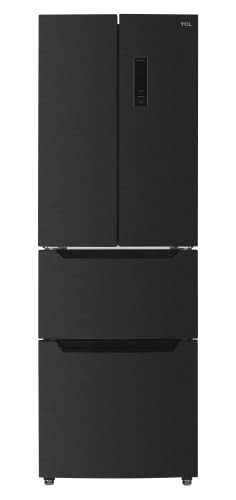The Comprehensive Guide to Refrigerators: Types, Features, and Maintenance
Refrigerators, typically referred to as fridges, play a critical function in modern homes by protecting food, reducing waste, and preserving a comfy living environment. These vital kitchen area home appliances have developed significantly over the years in terms of technology, effectiveness, and design. This article intends to supply an extensive overview of the numerous kinds of fridges, their functions, and suggestions for upkeep, making it an important resource for property owners.
Types of Refrigerators
Fridges are available in different styles and setups, each dealing with different needs and preferences. Below is an overview of the most common kinds of refrigerators available on the marketplace today.
| Kind of Refrigerator | Description |
|---|---|
| Top-Freezer | This is the traditional fridge style where the freezer compartment is located on top. Frydge is typically the most affordable option, making it popular for budget-conscious consumers. |
| Bottom-Freezer | In this design, the freezer is positioned at the bottom, allowing simple access to fresh items at eye level. This type frequently includes pull-out drawers for simpler company. |
| Side-by-Side | This design has the freezer and refrigerator compartments arranged vertically next to each other. It provides simple access to both areas and frequently features water and ice dispensers. |
| French Door | Combining the benefits of a bottom-freezer style with broad doors on the refrigerator section, French door fridges use ample area and flexibility, making them ideal for large families. |
| Compact | Likewise known as mini-fridges, these smaller systems are ideal for dormitory, workplaces, or as secondary fridges in homes. They have limited storage but are energy-efficient. |
| Smart Refrigerators | Equipped with wise innovation, these fridges use functions such as touch screens, internet connectivity, and app controls. They can provide alerts for ended food and other wise performances. |
Key Features to Consider
When choosing a refrigerator, it is necessary to think about various features that can boost use and performance. Here are some essential functions to search for:
Energy Efficiency
- Try to find designs with an Energy Star score to make sure energy performance and decreased energy costs.
Storage Options
- Adjustable racks, door bins, and specific compartments for vegetables and fruits improve the versatility of storage.
Water and Ice Dispensers
- Numerous side-by-side and French door models come with built-in water and ice dispensers, providing benefit and encouraging hydration.
Temperature Control
- Accurate temperature control allows house owners to set optimum conditions for different food products.
Smart Features
- Features like touchscreen user interfaces, Wi-Fi connectivity, and integrated cameras to assist manage grocery stocks make wise fridges attractive.
Noise Levels
- Consider designs with low operational sound, particularly if the kitchen area is open to the living location.
Upkeep Tips for Refrigerators
Appropriate maintenance can lengthen the life of a refrigerator and guarantee optimal efficiency. Here are some useful upkeep tips:
Regular Cleaning:
- Clean the interior and exterior surfaces of the fridge with mild soap and water at least when a month.
- Eliminate spills right away to prevent smells and germs development.
Temperature level Settings:
- Maintain your refrigerator at a temperature in between 35 ° F to 38 ° F and the freezer at 0 ° F for optimal food preservation.
Inspect Door Seals:
- Inspect the door seals occasionally for cracks or tears. A malfunctioning seal can cause energy loss and increased electricity expenses.
Defrost Regularly:
- For manual defrost designs, thaw the freezer when ice develops to lower the home appliance's workload.
Condenser Coils:
- Clean the condenser coils at the back or beneath the refrigerator every 6 months to improve effectiveness.
Keep it Level:
- Ensure the refrigerator is level for correct door positioning and to avoid vibrations.
Regularly Asked Questions (FAQs)
1. How long should a refrigerator last?Usually, a refrigerator can last anywhere from 10 to 20 years, depending upon the brand name and upkeep practices.
2. How can I enhance the energy performance of my refrigerator?To improve energy performance, keep the fridge's temperature settings ideal, routinely clean the condenser coils, and prevent placing hot food inside.
3. What kind of refrigerator is best for little kitchens?Compact or counter-depth designs are perfect for little kitchens as they supply adequate storage without occupying too much area.
4. Are clever fridges worth the financial investment?Smart fridges can be worth the investment if you value benefit and innovation. They provide performances like inventory management and remote access, which deal with tech-savvy users.
5. How can I fix a refrigerator that is not cooling correctly?Start by examining the temperature settings, ensuring the condenser coils are tidy, and confirming that the door seals are intact. If these do not fix the problem, think about calling a professional service technician.
In conclusion, refrigerators are essential home appliances that play an important role in protecting food and maintaining a healthy lifestyle. With a variety of types and functions readily available, it is necessary for customers to choose a design that aligns with their specific requirements. By comprehending the choices and sticking to upkeep best practices, house owners can enjoy the advantages of their refrigerators for several years to come.

